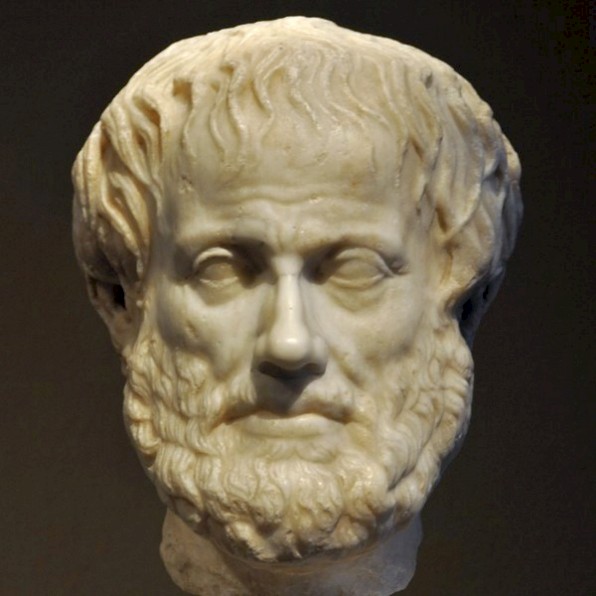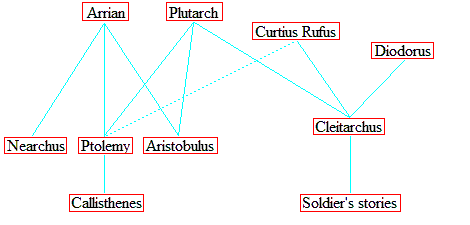Callisthenes of Olynthus
Callisthenes of Olynthus (ca.370-327): early biographer of Alexander the Great.

When Alexander, the young king of Macedonia, invaded Asia in 334, in his company was a professional historian named Callisthenes of Olynthus. The two men may have met as members of the circle around the Macedonian philosopher Aristotle of Stagira, who was an uncle of the historian and the teacher of the future king. Callisthenes had been educated by the great scinetist and had accompanied him to Assos and perhaps Athens. The two men had collaborated when they made a list of winners of the Pythian games. Later, Callisthenes had published ten books of Greek history (covering the years 387-356) and three books on the Third Sacred War.
During the campaign, Callisthenes' main duty was to write the Alexandrou praxeis or Deeds of Alexander, but he was also sent on scientific missions. For example, when Alexander was in Egypt, he sent his historian to Kush (modern Sudan). Some results of his voyage can be found in Aristotle's books: the philosopher states that the causes of the Nile floods were, thanks to a Greek visitor who had witnessed the summer rains in Ethiopia, no longer a mystery. Later, in Babylon, Callisthenes supervised the translation of the Astronomical diaries, which were used by Callipus of Cyzicus to reform the Greek calendars.
In the summer of 327, Callisthenes voiced protests against the introduction of proskynesis (an aspect of the Persian court ritual) among the Macedonians, and lost Alexander's favor (text). It is not clear what became of Callisthenes: Aristobulus and Ptolemy, officers who were present and wrote histories of the campaign, gave different accounts - he either died in prison or was crucified.
The book of Deeds of Alexander is now lost, but underlies much of what was written later. It seems to have been the work of a professional flatterer who knew how to please a king who had developed a life-long rivalry with Achilles. For example, it contained many allusions to Homer's Iliad, a calculation of the date of the fall of Troy (exactly thousand years before Alexander's visit to the sacred city), and references to towns mentioned by Homer and visited by Alexander. Callisthenes stressed Alexander's manly behavior and the effeminate weakness of the Persians. Another story that Alexander must have appreciated is that of the sea doing obedience to the new Achilles (discussed here). One thing is certain: Callisthenes did not object to Alexander's claim to be the son of Zeus.
It is not clear when the book of Deeds of Alexander was published. But secondary authors do not quote it to describe the events after 329, and it is possible that Callisthenes considered the death of Bessus, the last leader of the Persians, to be a fitting climax of his history. After all, Alexander had now conquered the whole of Persia, had reached the Jaxartes, had founded Alexandria Eschatê, and seemed to have triumphed after exactly five years of fighting. (A couple of months later, fighting was renewed.)
Be this as it may, it is certain that the work was not published in yearly installments to inform those remaining at home (as Julius Caesar was to publish his Commentaries on the war in Gaul). It was published as a unity, which can be shown from the fact that it consistently portrayed Alexander's right hand man Parmenion as overprudent. Before 330, there was no reason to describe Alexander's most trusted and capable general like this; however, in November, he had been executed because his son Philotas was suspected of a coup.

Callisthenes' book on the Deeds of Alexander is now lost, but it was used by secondary authors like Cleitarchus and Ptolemy, who are at the beginning of the 'vulgate' and the 'good' tradition. Therefore, they share the same chronology and mention the same officials. Their works are now lost too, but can be reconstructed from tertiary sources: Diodorus of Sicily, World History, book 17) and Curtius Rufus, Arrian of Nicomedia and Plutarch of Chaeronea.